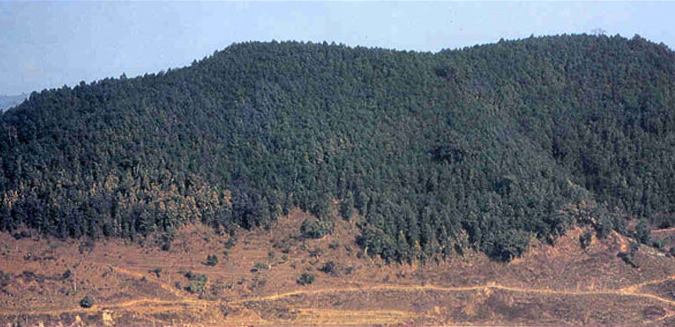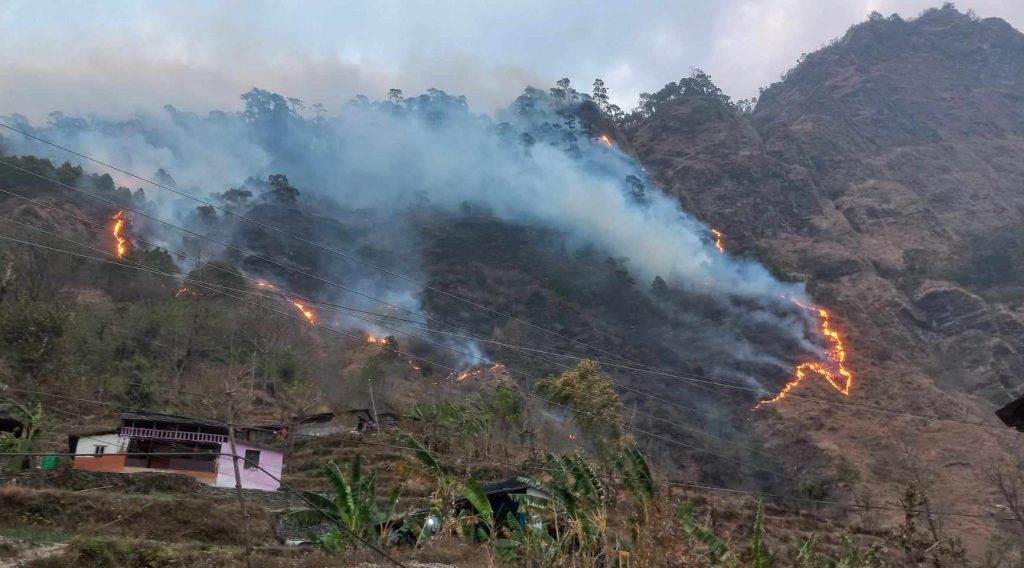Green Forest is not making prosperous Nepal
- Nature Khabar


Nepal is that land where people proudly assert the slogan “Hariyo Ban Nepal ko Dhan” which roughly translates as Green forest the gesture of wealth and prosperity of Nepal.Nevertheless, it is quite unfortunate to learn the reality that this slogan doesn’t hold truthfulness in real life. Green forest of Nepal hasn’t been able to make Nepal prosperous in any form.
Nepal is undoubtedly rich in forest resources but these vast resources haven’t been capitalized well. We are rich in the Forest area as the report of Department of Forest shows that land covered by forest in Nepal has increased from 39 percent to 44 percent. But the productivity hasn’t improve which makes it clear about the high time for optimum utilization of these resources.
We have witnessed the pressing reality of large scale migration of thousands of youths to foreign Job destinations for a long now. The major cause could be attributed to the Government’s inability in creating jobs inside Nepal itself mobilizing the ample green resources. Our forests in the villages are not utilized properly. Farmers who are dependent upon forest are facing the shortage of adequate technology in utilizing the things they have around them. They don’t know which plant they ought to be cultivating and about the medicinal herbs that could fetch them bigger profit.
The conference that was held at Bangkok, Thailand on the 7, 8 and 9th of December that was titled “Asia Knowledge Exchange Forum on promoting rights and livelihoods through forest and farm producer organizations “dealt more about these issues. This conference saw the participation of people representing Philippines, India, Indonesia, Malaysia, Vietnam, Cambodia and Nepal etc. I also got the opportunity to participate in the conference. After having attended this conference, I realized that more things could be done in Nepal in the field of forest resource management.
The painful backwardness in the technology and hurdles in the policy level have already pushed the development of Nepal to the hind side. Our government has given the Land Right but the tenure rights are yet to be secured. The main target of this Asia conference was to learn from each other’s experiences. All of the participating Asian countries are found to be struggling due to the policy hurdle. All the major organizations in Asia working for the forest and farming came together in devising the strategies to go hand on hand in the common issues. It was found that there are number of restrictions in the respective national laws which are preventing these organizations to forward their action plan. Lack of secure tenure in forest land and trees, Access to markets, restriction of government, inadequate capacity-building are the major challenges of the forest dependent people, the issues over which this conference threw little light upon.
However, the conference also showed some hopeful shining light. In the Vietnam, there is a provision for license and certification from the government. Likewise, the Tree Bank at Thailand offered lot of good things to be learned. This Tree bank promotes tree ownership and right to harvest them despite unclear and land tenure in Thailand. It manages a database documenting and valuing living trees from groups and eventually aims to act as a financial institution from which advance cash or loans can be obtained. Through the valuation trees can be treated as collaterals to overcome the lack of land tenure certificates in case of the farmers which are quite easily accepted by banks.





Feedback